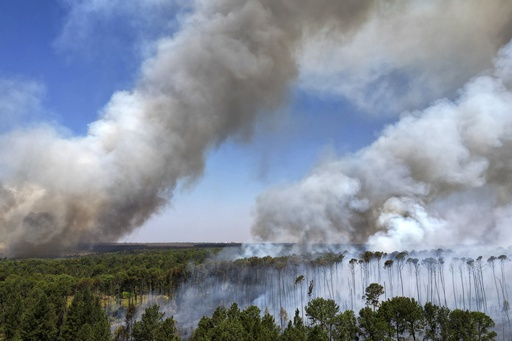President Luiz Inácio Lula da Silva recently visited the Amazon to assess the impact of drought and fires in the region. During his visit, he announced plans to pave the BR-319 highway, a move that has raised concerns among environmentalists and some members of his government. The road, which connects the states of Amazonas and Roraima, is feared to increase deforestation and contribute to climate change in the world’s largest tropical forest.
The BR-319 road is currently a mostly dirt path that ends in Manaus, the largest city in the Amazon region with a population of over 2 million people. It runs alongside the Madeira River, a crucial tributary of the Amazon River, which is currently experiencing record low water levels. President Lula emphasized the need to connect isolated capitals while acknowledging the environmental risks involved in paving the road.
Despite opposition and legal challenges, President Lula signed a contract to pave a 52-kilometer section of the road and expressed intentions to start work on the contentious 400-kilometer stretch through old-growth forest before his term ends in 2026. The permit for this longer section was issued by Lula’s predecessor, Jair Bolsonaro, who had relaxed environmental protections in favor of development in the Amazon.
Environmental groups, including the Climate Observatory, have voiced concerns about the potential consequences of paving the BR-319 road, citing the interconnectedness of the forest, water sources, and climate. While President Lula has been recognized for efforts to reduce deforestation, his decision to proceed with paving has faced criticism from conservation advocates.
The Amazon region is currently facing severe challenges due to the worst drought on record, affecting a large portion of the country. Additionally, wildfires have spread across the Amazon, leading to thick smoke affecting millions of people in distant cities and neighboring countries. The extreme drought, attributed to climate change, has made the rainforest more susceptible to fires, according to Environment Minister Marina Silva.
Brazil, as the world’s fifth-largest emitter of greenhouse gases, plays a significant role in global emissions, with a substantial portion stemming from deforestation in the Amazon rainforest. As Brazil grapples with environmental and climate crises, the decision to pave the BR-319 highway remains a contentious issue that raises concerns about the future of the Amazon and its impact on the planet’s climate.


